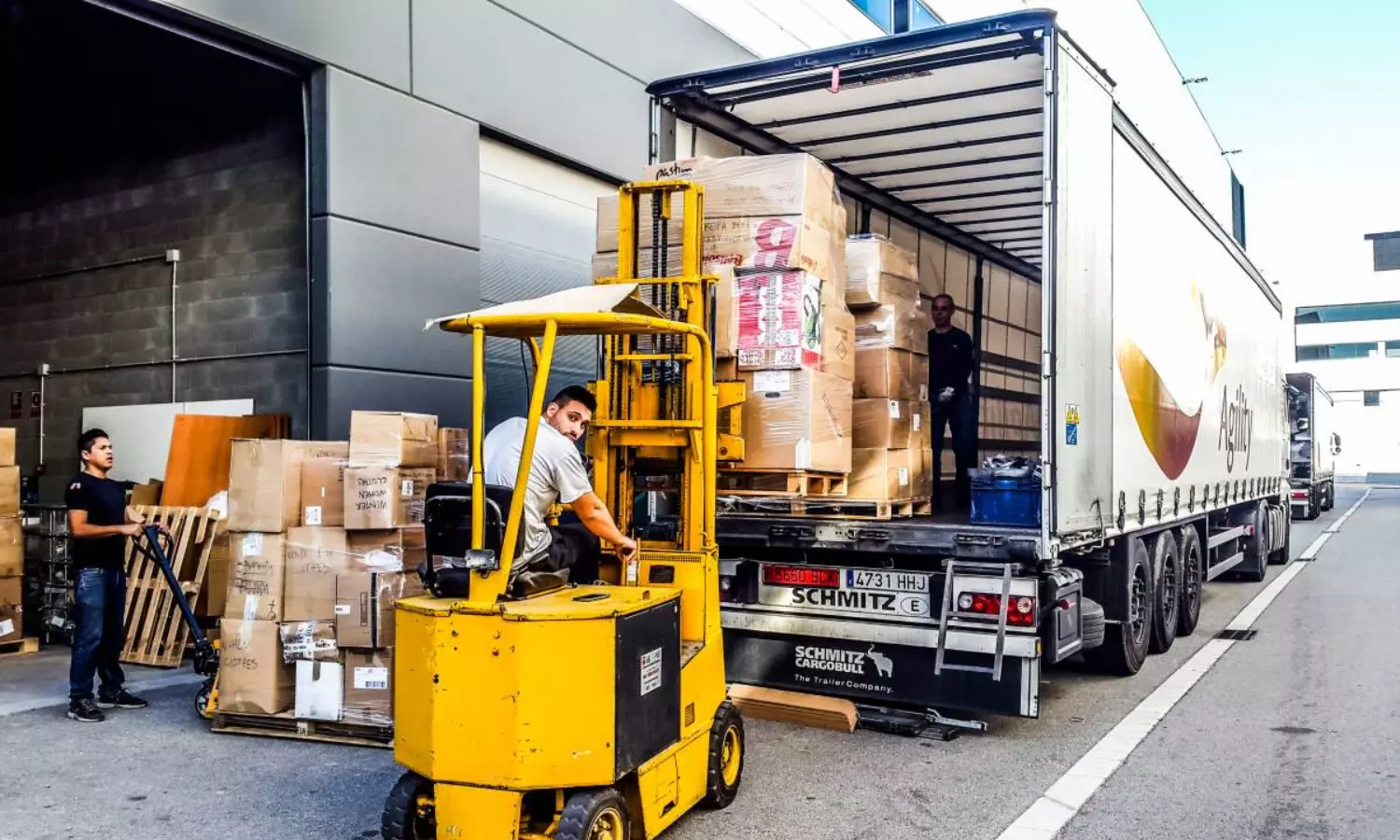Ghana bright spot in Agility Emerging Markets Logistics Index 2022
"No nation in the 50-country Agility Emerging Markets Logistics Index opened eyes as much as Ghana."

While Covid affected the ranking of Uganda, lack of security and stability pushed Nigeria’s ranking lower.
Ghana, Africa's 8th largest economy, jumped eight spots to No. 32 in the Agility Emerging Markets Logistics Index 2022.
Ghana saw its ranking increase in every element but its eight position rise to 37 in the international logistics opportunities ranking was the strongest, the report said. "No nation in the 50-country Agility Emerging Markets Logistics Index opened eyes as much as Ghana." So is Ghana a model for the rest of the continent? That's not clear, says global logistics company Agility in the report.
Ghana posted GDP growth of 6.6 percent in Q3, far ahead of the forecast rate of 3.5 percent. "The World Bank projects GDP growth for the country to be 5.8 percent in 2022 vs. just 3.5% for sub-Saharan Africa as a whole. What's troubling economists is the country's debt load. Suffocating interest payments could eat up 46 percent of Ghana's government revenues, according to S&P Global."
Across the continent, sustained recovery is closely likely tied to Covid vaccinations, the report said. "Less than 10 percent of the continent's population has been fully vaccinated. In many countries, the availability of vaccines is not the biggest issue: it is the ability to safely store, transport and administer shots on a large scale."
A new continental free trade agreement and the push for visa-free intra-African air travel could accelerate the integration of Africa's economies and super-charge business growth and job creation. "But both are unlikely to have much impact without an accelerated vaccination campaign," the report said.
Africa is an inadvertent casualty of the turmoil in the global supply chain. Ocean carriers diverted ships from their African port calls to more profitable Asia-US routes and Asia-Europe lanes. "Here's hoping for a better year for Ghana and the continent."
The Agility Emerging Markets Logistics Index 2022 examined four key areas for logistics market development:
- Domestic logistics opportunities;
- International logistics opportunities
- Business fundamentals
- Digital readiness
The analysis by Agility highlighted that an accelerated shift to online retail, digitalisation and sustainability will be the legacy of the Covid-19 pandemic.
Sub-Saharan Africa's highest placing market in the digital readiness ranking is Kenya (17th) which, along with South Africa (21st) and Nigeria (31st), represents the region's most active start-up communities as well as some of its most connected population.
Ghana was again a bright spot for Sub-Saharan Africa's performance, rising four positions to 28th - the only market from the region to improve its position in the business fundamentals ranking. "Reforms include programmes to develop digital infrastructure across the country's rural and urban areas, drive a transition to a cashless economy enabled by digital payments and the automation of government business processes, including customs operations at ports under the Paperless Ports System."
While Covid affected the ranking of Uganda, lack of security and stability pushed Nigeria's ranking lower.
"A majority of logistics professionals surveyed for the Index see record ocean and air rates, clogged ports, and other supply chain disruption persisting into late 2022, even 2023. Pandemic-related closures and congestion are the biggest issues, in their view, followed by the ocean container shortage, carrier capacity issues, and port infrastructure," the report said.
While 15 percent participants felt high sea rates will be here to stay, over 11 percent felt so for air rates.
Digital readiness: How emerging markets will separate themselves
In 2021, the United Nations issued a report saying that 37 percent of the world's population – about 2.9 billion people – have never used the Internet. Most live in developing countries, it said. "At the same time, the UN reported a Covid connectivity boost in Internet usage. The number of people using the Internet rose to about 4.9 billion, up 17 percent from 2019. Why? School closures, searches for health updates, the shift to e-commerce and other factors moved more people online.
Digital was a big theme in the survey of logistics professionals for this year's Index, the report said. "They identified adoption of technology as the leading driver of economic and business growth for emerging markets. They picked operational technology, supply chain sustainability, and advanced tech such as AI as the three main focuses for the logistics industry in 2022 and beyond."
So, for emerging markets, digital's day is here.
"We see such a strong connection between a country's digital capabilities and its growth prospects that we have added a Digital Readiness ranking to this year's 50-country
Agility Emerging Markets Logistics Index," says Tarek Sultan, CEO of Agility, a global supply chain company. "Increasingly, the competitiveness of these economies will be determined by their ability to develop digitally skilled businesses and talent pools, as well as lowering emissions intensity in ways that spur growth rather than sacrificing it."
Agility's Take: 5 ways the pandemic changed supply chain forever
1. Supply chain is on the front-burner for good
2. Flexibility+ resilience+ business continuity > cost
3. Buyer-supplier relationships have been altered
4. Business lines are blurred and workarounds are SOPs; and
5. The inventory playbook has been ripped up.
"What's clear is that nearly two years after the world first learned of Covid, the supply chain is still experiencing an unfortunate series of firsts," Tarek Sultan wrote in a blog published by the World Economic Forum. "A historic level of carrier unreliability. Record-high freight rates. Record-low warehouse vacancies. And more."
It will pass. When it does, look for a more intelligent supply chain, Sultan concluded.


